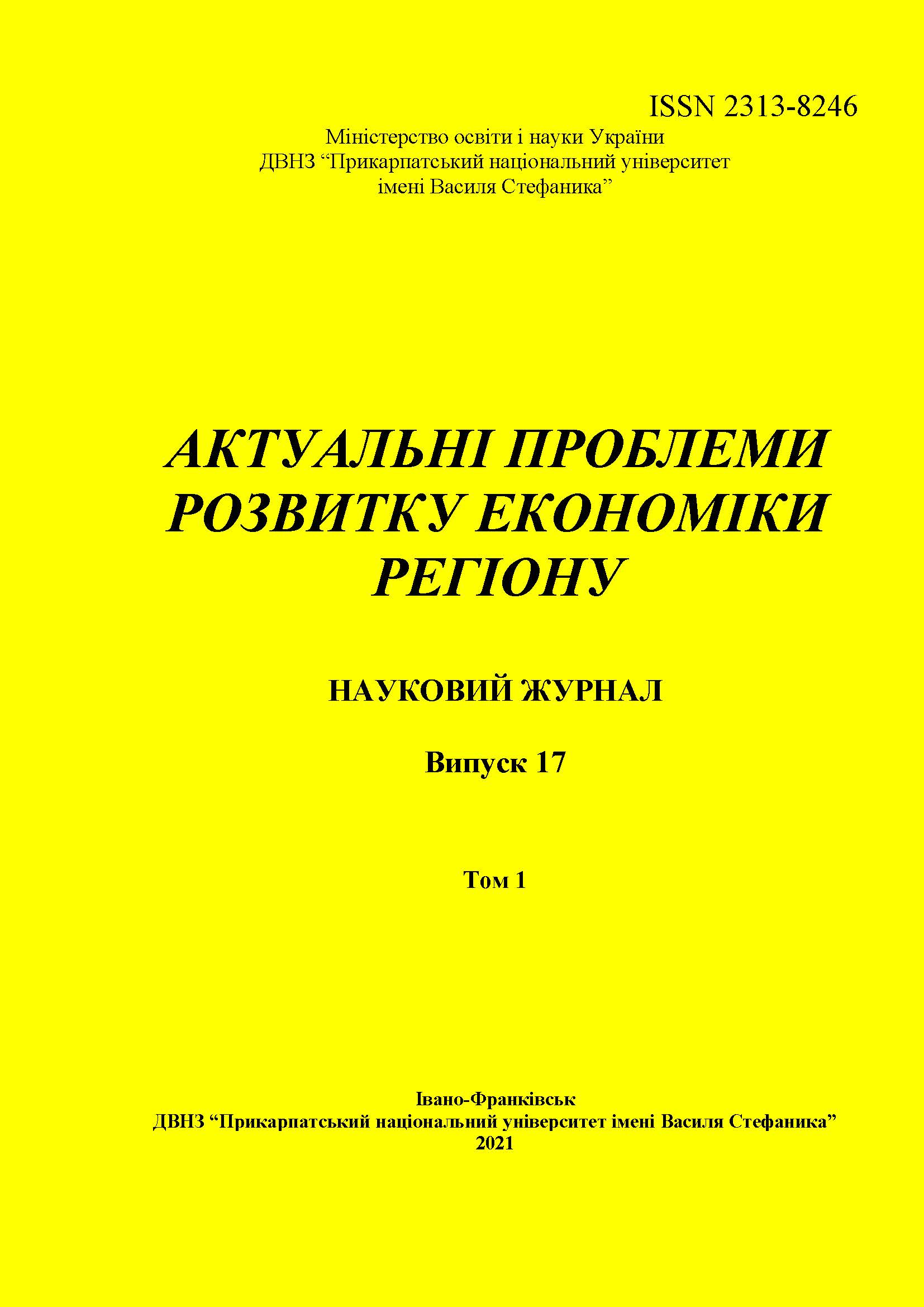SPATIAL FACTORS OF FORMATION OF CONDITIONS OF ECONOMIC DEVELOPMENT IN UKRAINE
DOI:
https://doi.org/10.15330/apred.1.17.128-143Keywords:
decarbonization of the economy, industry 4.0, servicing, spatial capital management system, digitalizationAbstract
The purpose of the article is to develop the theoretical foundations and methodical provisions for the parameters’ transformation of the spatial capital management system in the region under the influence of global challenges. After analyzing the works of leading scientists and analytical materials of world research centers, the work highlights the current trends in business structures due to the transformation of the spatial capital management system; features of the impact of changes in the spatial capital management system on the processes of implementation of public administration and human life. Maturity of different industries from the standpoint of the level of digital transformations is investigated. Among the global challenges of the transformation of the properties of space, the authors singled out digitalization, servicing, Industry 4.0, and the decarbonization of the economy. The paper proves that together these challenges change the traditional understanding of the essence of management as a type of management activity, which is manifested in the transition to the concept of developing differentiated individual performance indicators; permanent reduction of polarization between the concepts of mass production and quality of local goods, works, services; transition from the mass market to the changing market of individual or microgroups of buyers, etc. As a result, under the influence of these processes there are new production systems (wikinomics, new network cooperatives), new methods of delivery of goods (virtual fitting, 3D printing, e-books), new property systems (economics of gift and economics of distributed use, free goods / services); new management systems (independent boards of directors, multisteakholderism, lack of hierarchies, collective leadership); new financing systems (crowdfunding and “ethical banking”); new systems of market organization (mechanisms of co-competition).
References
2. Vernera, I. Statistical Yearbook of Ukraine for 2018, LLC “BEECH-PRINT”, 2019.
3. The state in the smartphone. UkrInform, www.ukrinform.ua/tag-derzava-u-smartfoni. Accessed 28 June 2021.
4. Yegorov, I., and Gryga, V. “Comparative analysis of digitalization indicators in Ukraine and other EU Eastern Partnership countries”. Statistics of Ukraine, no. 3, 2019, pp. 56-62.
5. Oaterval’der, A., and Pin’e, I. Building Business Models: The Strategist and Innovator's Handbook, Alpina Publisher, 2012.
6. The structure of ANO “Digital Economy”, data-economy.ru/organization. Accessed 27 June 2021.
7. E-Government Development Index, www.statista.com/statistics/421580/egdi-e-government-development-index-ranking/. Accessed 26 June 2021.
8. E-Participation Index, egov.unu.edu/news/news/un-egov-survey-2018.html. Accessed 28 June 2021.
9. Institute for the future, http://www.iftf.org/home/. Accessed 28 June 2021.
10. KPMG Route to Digital Business Leadership. 2018, home.kpmg/xx/en/home/insights/2017/09/the-route-to-digital-business-leadership.html. Accessed 27 June 2021.
11. OECD. Recommendation of the Council on Digital Government Strategies. Paris, OECD Publishing. 2014, www.oecd.org/gov/digital-government/Recommendation-digital-government-strategies.pdf. Accessed 26 June 2021.
12. Schvab, K. The fourth industrial revolution, World Economic Forum, 2016.
13. The Low Touch Economy is here to stay, www.boardofinnovation.com/low-touch-economy/. Accessed 27 June 2021.
14. Worldwide Government Indicators, info.worldbank.org /governance/wgi/#home. Accessed 26 June 2021.
Downloads
Published
How to Cite
Issue
Section
License
- Authors retain copyright and grant the journal right of first publication with the work simultaneously licensed under a Creative Commons Attribution NonCommercial NoDerivs 4.0 Unported License that allows others to share the work with an acknowledgement of the work's authorship and initial publication in this journal.
- Authors are able to enter into separate, additional contractual arrangements for the non-exclusive distribution of the journal's published version of the work (e.g., post it to an institutional repository or publish it in a book), with an acknowledgement of its initial publication in this journal.
- Authors are permitted and encouraged to post their work online (e.g., in institutional repositories or on their website) prior to and during the submission process, as it can lead to productive exchanges, as well as earlier and greater citation of published work (See The Effect of Open Access)


